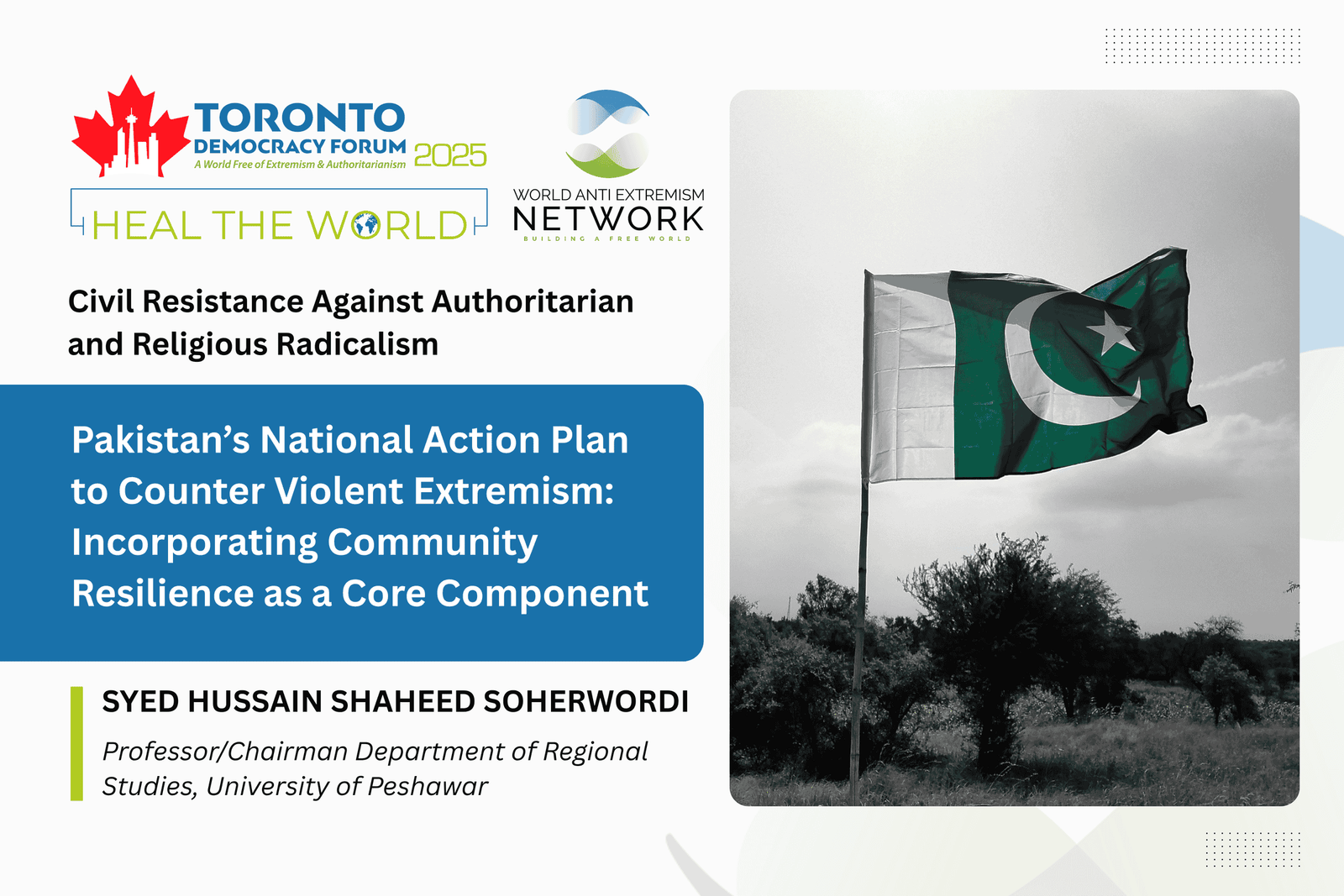
Community resilience stands out as one of the most effective modes of civic resistance against extremism, empowering people to counter radical influences through social unity, dialogue, and shared responsibility. Yet in Pakistan, despite years of military operations and policy reforms, extremism continues to find ground in vulnerable regions. The National Action Plan (NAP), introduced in 2014 to curb extremism, remained limited in its impact and overlooked a vital component: building resilient communities capable of resisting extremist narratives from within.
Professor Hussain Shaheed Soherwordi explores this missing dimension in his evidence-based analysis, arguing that integrating community resilience into the NAP could transform it into a truly comprehensive counter-extremism strategy. This piece has some grounded insights and practical recommendations that shed light on how Pakistan can move from reactive security measures to proactive, community-led resistance.
About the author

Syed Hussain Shaheed Soherwordi is a Professor, Chairman of the department of Regional Studies and former Chairman department of International Relations for six years and Director of the Institute of Peace and Conflict Studies with the University of Peshawar, following a career as researcher and professor of International Relations, Conflict Resolution, Countering Violent Extremism (CVE), Community Resilience, Political Science and Creative Leadership. He is the director of the Center for FATA Studies, University of Peshawar. He remained convenor of a ‘Working Group for Pakistan’s Foreign Policy towards Afghanistan’ at Pakistan’s National Security Division, Islamabad, for four years. He completed his MS and PhD from the University of Edinburgh, Scotland. He concluded his National Security & Foreign Policy fellowship at the University of Delaware, US, in 2018.
He was a fellow of the Fulbright, Carnegie, Charles Wallace, and Higher Education Commission (HEC), as well as Edinburgh University. He taught at the Fulbright Commission, Bulgaria, for five years (2010-2014), where his teaching and training concerned peace & conflict resolution during the 21st century, especially extremism in the conflict zones like FATA (Pakistan), Afghanistan, the US foreign policy, South Asia, and the Middle East. He also taught at the University of Edinburgh from 2005-2010 on a part-time basis. Dr. Soherwordi has written more than fifty (50) research papers in National and International journals on the history & relations of India-Pakistan, China, the Tribal Areas of Pakistan, the War on Terror, Afghanistan, Pak-US relations, Conflict Resolution, and the application of strategies to the prevention of terrorism, extremism, and amelioration of counter-violent extremism. He edited two volumes titled “Socio-Economic and Political Currents in FATA: A Way Forward” in 2015 and “Religion, Economics and Politics of FATA” in 2021 by Peter Lang Publishers, US. His latest book, titled “A Divergent Foreign Policy Alliance: The Pak-US Relations,” was published in the US in November 2024.
Prof Soherwordi has consulted for numerous foundations and government agencies on subjects like governance, local government, police reforms, education policy, federalism, and decentralization. He is a visiting professor at the Command and Staff College, Quetta, National Institute of Management (NIM), Peshawar, Pakistan Naval Academy, Karachi, Pakistan Navy War College, Lahore, and National School of Public Policy (NSPP), Lahore. He is also a member of the editorial boards of numerous national and international Journals. Dr Soherwordi regularly contributes his write-ups in national newspapers and appears on different national and international news channels to give his comments on issues of global concern.

